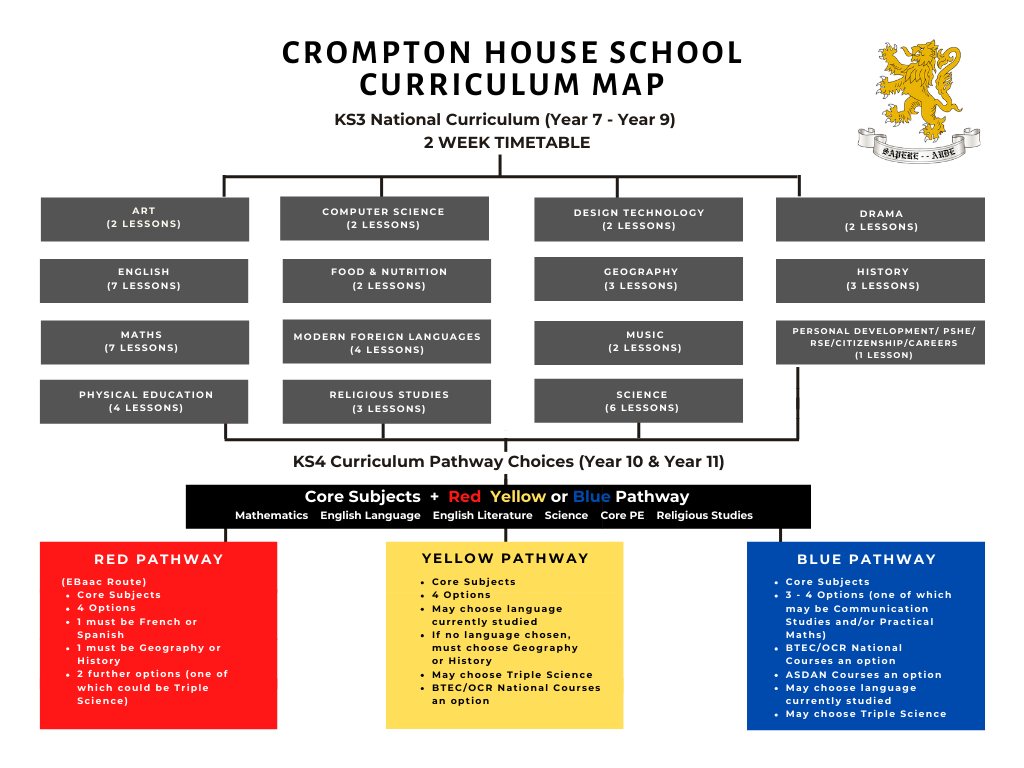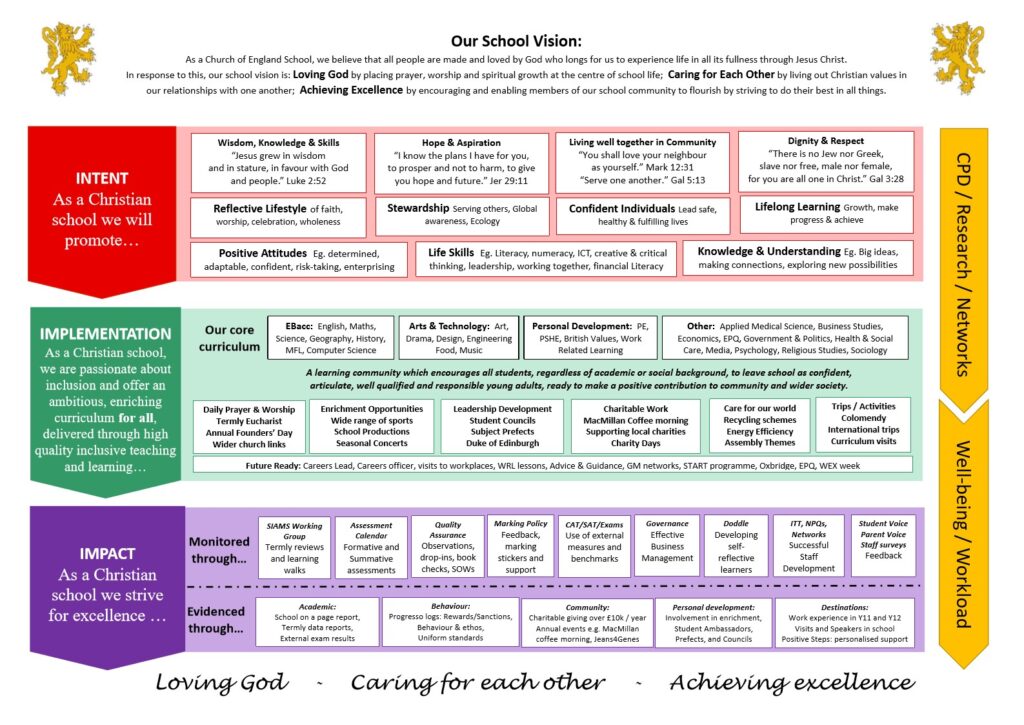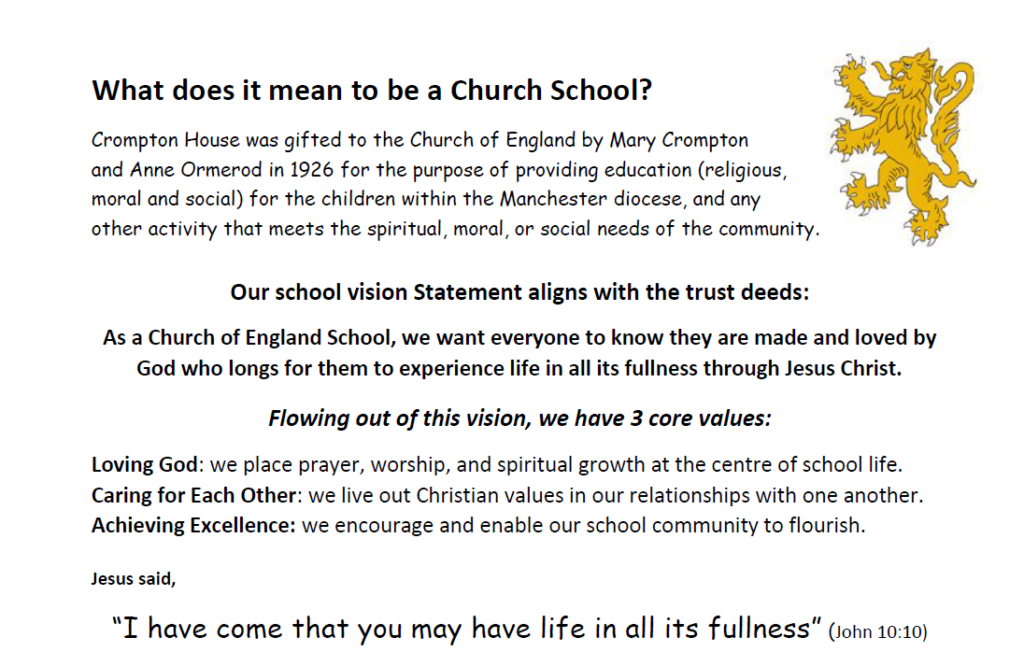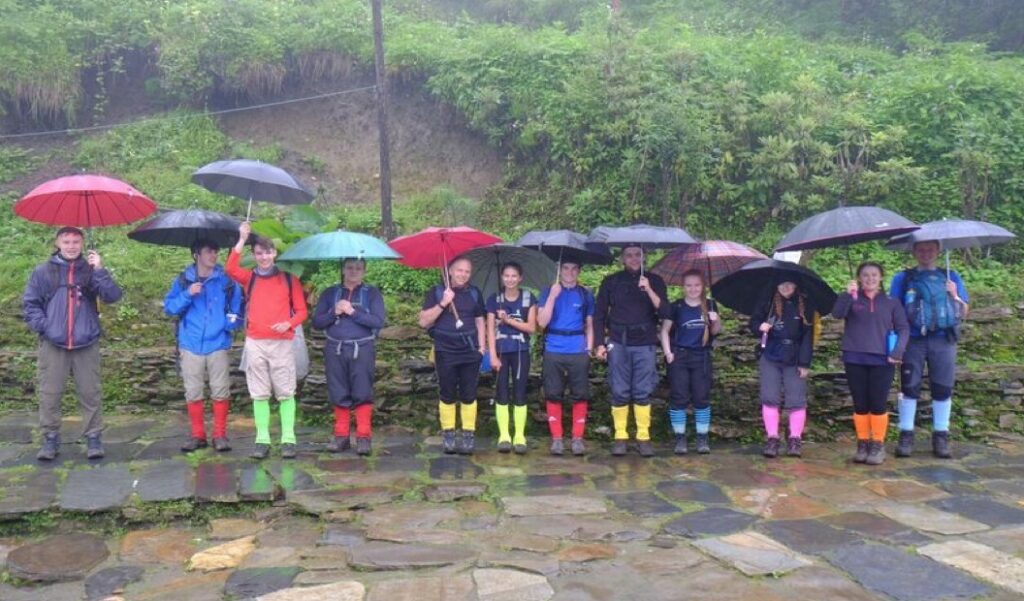After 18 months of fundraising, towards the end of July a dedicated group of 11 intrepid Crompton House Sixth Form students and 2 staff began an epic 18 day expedition to Nepal. The main aims were to carry out work on a community project – helping to lay the foundations for a new school building for a valley whose school had been destroyed in the 2015 earthquake, to trek in the Annapurna region and experience a completely different culture. Here is the story as told by 3 of those students.
Into the Annapurna foothills, the trekking section of our trip began. Fresh from the city of Kathmandu and eager to see Nepal’s natural beauty, it required a coach journey to arrive at our starting point. Upon arrival our holdalls were split into groups of three and quickly tied together and thrown onto the back of the porters who shot off with around 50-60kg on their backs. Amazed before we even started the walk, it didn’t take us long to get it underway.
Day one took us from civilisation to a small guest house inaccessible by vehicles. On the odd occasion a train of donkeys would pass through the courtyard watched over by a local farmer and his wooden stick. Our beds were simple but did the job, a mattress of no more than a couple of inches in depth on a raised wooden platform allowed us to get the sleep we needed. Day 2 was the day we were all dreading we were told there would be 3000 steps however in the end Eleanor had counted around 10,000 so it was fair to say we were all very tired after that day. Yet by climbing so high the view back down the valley became almost indescribable, seeing the guest house we had stayed at the night before looking like a pin head at the bottom of the valley and hundreds of rice fields scattered all over the sides of the valley. It was well worth our first and definitely not last encounters with the leeches of Nepal.
Around 8000 steps high we stopped for lunch which usually consisted of noodles, a different type of meat and vegetable each day. It was rare to leave anything as everyone knew they needed every calorie that was on their plate to get through the day. After all of the steps we were submerged in cloud at 2870m high at which we reached our second guest house.
Due to the altitude and terrain the guest house became a little more simplistic with ply wood acting as walls dividing the bedrooms. That night it would be fair to say was the coldest night we had all experienced, many regretting their decision to not use their sleeping bag and only use it as a blanket. The following morning we woke up at 4 o’clock to catch the sunrise over the foothills this however required another climb of 400m to reach the top of Poon Hill (3200m), sadly for us the mist decided to stay put that day so we had a view of cloud for a good 2 hours. After our early rise it was back on the trail, the rain was particularly bad on this day but thankfully we had all bought brollies in Pokhara after some advice from our guide. This didn’t diminish the beauty of the forests and waterfalls that were in full flow. However, we did have to take refuge in a guest house earlier than planned as the path began to get treacherous leaving it unsafe for us to travel further. Day four then consisted of a longer walk to our community project but the thought of being in one place for almost a week was the inspiration that kept us all going. On arrival the views, combined with the smiles on the local people’s faces, were the perfect ending to what has to be one of the most memorable treks I have ever been on in my life.
Alex Travis
Our late afternoon arrival in the village of Kilyu was a quiet affair at a guest house perched on the side of the steep hillside, in contrast to the following morning when we were greeted and blessed at the school site by the village chief and headteacher, with respected elders plus a cast of onlookers from the area in attendance.
We had been shown the site the evening before but it was only when we started the actual work of moving tonnes of earth, rubble and rocks, into the foundations of the new building, with only shovels, crowbars, pick axes and our ‘person power’ that we realised the enormity of the task. Undeterred we saw this as the perfect challenge and understood the importance of laying the base from which the new school block will rise. Due to a lack of tools the group was split in two and shifts were set up – alternating between the earth moving and peeling and tying corn which would be the villager’s main source of flour and food for the winter. The days passed, a mixture of heavy monsoon rain or hot, dry spells, with villagers dropping in from time to time to join in and make acquaintances with us. The evenings were spent at the guest house. A hearty dahl based dish was served and time passed playing card games and resting from the physical labours of the day.
As the time passed the open foundations became more and more filled with material and by the end of our stay the village elders were extremely pleased with what we had achieved, saving them time, money and allowing them to remain busy in the paddy fields. On our final day at the school some of the students came especially (as it was the holiday) to be taught by us – a daunting prospect! It is amazing how far a board and pen, pictures, smiles and singing simple songs can go towards building a great rapport and some fun learning. The children were fantastic and it was a privilege to do this. After the teaching, thanks and blessings were bestowed upon us for the work and for the huge bag of teaching resources and games we had donated and the 2 computers that were going to arrive that our money raising had paid for. An impromptu football game and a mud fight in the paddy fields with the villagers were further highlights of our time in Kilyu. People with very little by our standards were so welcoming, so friendly and happy this was a really amazing part of the trip.
M.B.
Once the community project was over it was time to trek down the rest of the mountain. We walked down the side of a valley that carved its way through the lush green foothills of the Annapurna mountain range, a river roaring its way past the side of us. The trek was long but not as long as the ones we completed prior to this day, four hours at most. Once we arrived back at our bus we were taken back through the rolling hills until the land started to level and we could see the outline of Pokhara in the distance. This is where we will be spending the next 2 nights of our trip. The following day we were woken early so that we could embark on a three hour long journey to the Peti River, where we all boarded two rafts and began a short journey down river. The river levels were high due to high levels of rain during the monsoon so the rapids did not look like much but make no mistake, putting one arm in the water allowed you to experience just how strong the currents were. After disembarking the rafts it was time to board the bus and head off back to Pokhara. After another three hour journey we finally arrived back at our hotel in Pokhara, we stayed here for one more night and as a treat we ate out in one of the best restaurants in the city. It was definitely a meal to savour. The following morning we were due to set out to Chitwan national park as the road had just reopened after torrential rain caused major landslides along route. However an unfortunate incident occurred over night. The Nepali prime minister had chosen to step down from his post after increasing public pressure to do so. This meant that as of that moment Nepal no longer had a government in control. In order to keep order the Nepali police and military closed down all the roads linking the major cities together, meaning that we were blocked from travelling to Chitwan on our own. We were however allowed to go in a convoy, so that is exactly what we did. With a military vehicle at the front and one at the back, the convoy of forty tourist buses began their journey across Nepal. Halfway through half of the buses split off and headed to Kathmandu, but we carried on through to Chitwan. After a long tiring seven hour journey we finally arrived at Chitwan national park. Here is where we learnt about the way Nepali people used to live in the jungle. We toured a small mud village and experienced a set of tribal dances that evening. The following morning we were up early to head down to a small river. Here we loaded ourselves into a low siting canoe and were paddled down the river to look at the wildlife. Birds cried in the trees and insects buzzed around our heads but the real treat was eye level and sleeping on the nearest bank of the river. The crocodiles were spectacular. The ridges down their backs made channels for the water to travel through when the river lapped over their bodies as they quietly slept on. After about half an hour the boat pulled up to the river bank and we all peeled ourselves out of the canoe. This started our two hour jungle trek. In the space of those two hours we saw sweet nothing, that is until we left the trees. This is when a family of elephants walked straight across our path, being herded by men to the nearest water hole to have a drink. In the afternoon we were going to ride on the back of those elephants to go on safari through the jungle. At first the only excitement we got was that we were actually riding on the back of an elephant, however that all changed when we heard a faint rumbling that began to grow louder. All of a sudden the trees were alive with movement as hundreds of deer burst though the undergrowth. It was a spectacular sight to behold but our excitement turned to nerves when our guide told us that it was because there was a tiger nearby. After our safari we headed back to the room to get some food and rest. The following day we headed back to Kathmandu, a supposed six hour journey that we completed in a round twelve hours due to traffic problems. None of us had much energy to do anything so we got an early night so we could hit the shops in the morning. When daylight came we were up and ready to go, we grouped together and braved the Nepali streets so that we could buy all the gifts we needed. It started out as a fairly expensive task but once we had a few interactions with the locals we got the hang of haggling down to a fair price. After our day of shopping it was time for our last meal. Everyone decided that it was time to move off from Nepali food and treat ourselves with some good old western cuisine. Sorry Dahl Baht but it is still one of the best meals I had there. Once back at the guest house we all bid each other good night and headed off to bed. Tomorrow was the dreaded day of our return home. After our long flights and interval at Istanbul airport, we arrived back in Manchester looking like, according to my dad, a cross between MC Hammer and a genie. I don’t see where he got that from but it could’ve had something to do with my pants that were so baggy that they dragged along the floor. And so after bidding everyone farewell, our two week long adventure finally came to an end.
A.R.
For the final part of the trip we became more like tourists – what a shock it was to get to a road, the noise and crazy lorry and coach drivers. Even more of a shock was the number of people everywhere as Saturday is the holy day and consequently a family day and then a hotel with fans plus a meal in a restaurant.
Whitewater rafting was amazing in a monsoon swelled river – super fast, super fun. Not so fun – a 6 hour journey which turned into 11 hours, due to the poor roads, crashes and roadworks. Eventually at Chitwan National Park we took part in a rainforest trek, a canoe ride through crocodile filled waters and an elephant safari which brought us very close to wild rhinos. Then it was back to the hustle and bustle, pollution, noise and excitement of Kathmandu. Before we left, a visit to the Swayambunath Stupa, often known as the monkey temple due to the hundreds of wild monkeys who live within its gates, was in order. It is an amazing mix of Hindu and Buddhist temples, people trying to earn a living selling knick-knacks, greenery and wildlife, on a high point – it is a sort of mini version of Nepal. Seeing real poverty in places and the destruction from the earthquake was heartbreaking at times, but the ingenuity of people, the resilience of the people the friendliness and warmth from all that we met was uplifting. All of us all have come back changed and all of us would like to go back to revisit the school and the country – it is fantastic.
An alternate end by Mr Banks





